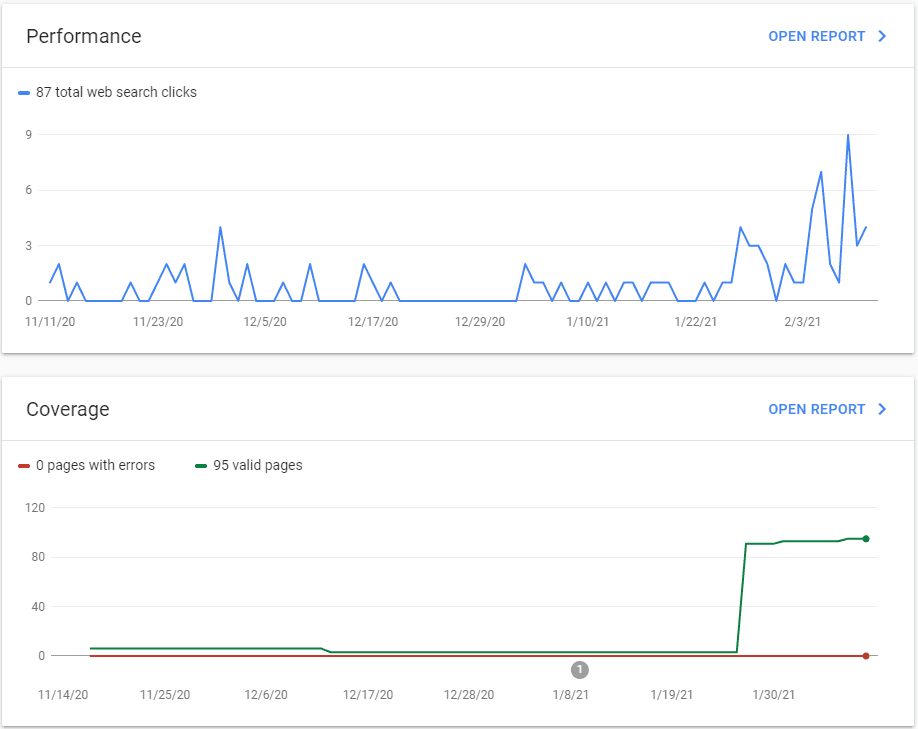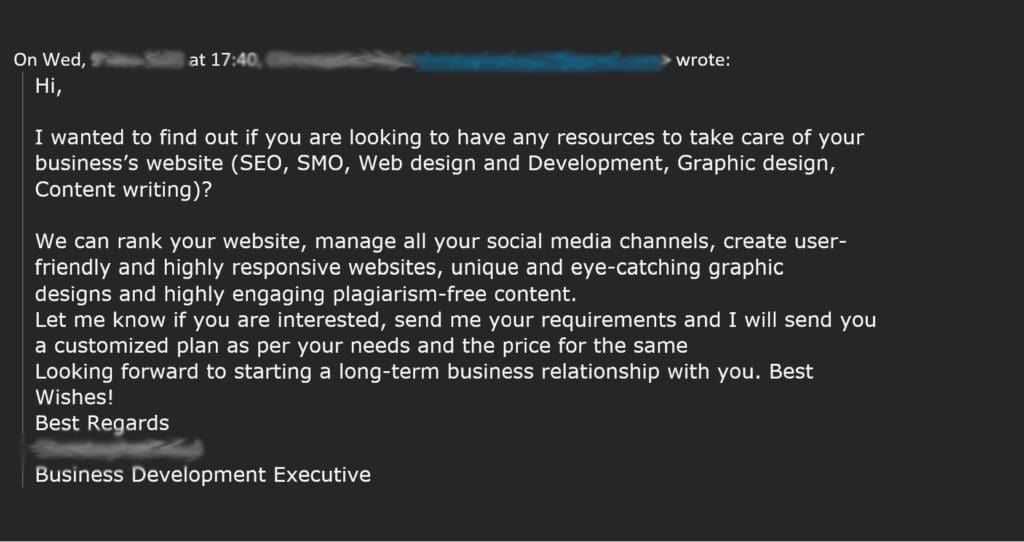Disclosure: This post contains affiliate links, including Amazon Affiliate Associate links, through which I earn from qualifying purchases at no extra cost to you. I only recommend products I genuinely believe in. Visit my Privacy Policy page for more information.
Owning my SEO agency for the past 15 years, I have come across many questions potential clients ask, and many they don’t, but they should
So,, if you are looking for the right SEO consultant for your business, this post is for you. You have already recognised the importance of SEO for your business and now want to know what to ask SEO consultants so that you can find a reliable and skilful SEO to work with. Smart move!
However, finding the right person (or agency) can be daunting, especially if you’re new to search engine optimisation. We’ll provide you with 22 questions to ask potential SEO consultants you are considering working with to help you make an informed decision and develop a winning strategy.

1. What SEO services do they provide?
Before diving into the details, it’s vital to establish what services the SEO consultant or agency offers. Different consultants may specialise in different aspects of SEO, such as technical SEO, on-page optimisation, content creation, e-commerce, off-site SEO tactics like link building, or local SEO work.
Within these aspects, there will also be secondary areas of specialisation, for example, if they are more focused on (B2B) business-to-business or (B2C) Business-to-consumer.
Some SEO consultants also assist with other digital marketing areas, such as paid Google or Facebook Ads or Social Media Marketing. Still, an agency is probably your best bet if you need lots of services and support from a large team.
If there are services you may adopt later, choosing a company that can take care of them when you are ready is best. Understanding their areas of expertise will help you determine if they can meet the specific needs of your business.
Additionally, you should consider whether you want the consultant to handle all the SEO tasks or if you have resources within your company or a (VA) Virtual Assistant to help with certain tasks.
2. Have they worked with clients in your industry before?
While industry experience isn’t always a deal-breaker, working with an SEO consultant with prior experience in your industry can be beneficial.
They will better understand your target audience, terminology, competitors, and the unique challenges you may face in your marketing and SEO.
If the consultant hasn’t worked in your industry, ask them how they plan to quickly familiarise themselves with your business and develop an effective, focused strategy.

3. Can they provide examples of successful SEO campaigns?
One of the best ways to gauge the expertise of an SEO consultant is by looking at their track record.
Ask them to share case studies or examples of past clients they’ve worked with, the services they provided, and the results they achieved.
This will give you insights into their ability to deliver tangible results and help you assess their suitability for your business.
It would be best to look closely at KPIs (Key Performance Indicators), ranking keyword positions, backlink profiles, click-through rate and ROI (Return On Investment).
Client Case Study – An SEO Success Story
This quick case study is from a project undertaken for a small local business website, so it’s a good example here. Their website pages were not being indexed, and a few we found which were indexed did not rank well or get any clicks.
It was a small local business that would have sunk fast without our help.
The Challenge: The website was virtually invisible to search engines. Our mission: overhaul it for search engine visibility and quickly.
Redesign and Technical Fixes: We cleaned up code, fixed errors, and ensured a smooth user experience.
Keyword Strategy: We uncovered crucial keywords, the foundation of our content strategy.
Content Upgrade: We made the content informative and engaging, making it a valuable resource in their industry.
Results:
As soon as the new site was launched, it instantly affected them positively. The seeds for a successful online presence were sown, and as soon as the website was launched, they started to gain new website traffic, resulting in enquiries and business.
- Organic Traffic: Soared by 70% and carried on increasing.
- Keyword Rankings: Achieved first-page rankings for some target keywords.
- CTR: Increased by 25% with compelling meta titles and descriptions.
- Bounce Rate: Dropped by 15%, visitors engaged longer.
Conclusion: SEO isn’t magic; it’s strategic. Your website could be the next success story.

4. How do you approach improving search engine rankings?
Beware of consultants who promise immediate results or guarantee top rankings. SEO is a long-term strategy that requires continuous effort and adaptation to gain momentum.
A consultant should conduct a thorough audit of your website to identify areas for improvement at the very start. They should choose keywords for on-page optimisation, technical SEO, and content creation.
Ask them about their process, how they plan to improve your website’s search engine ranking in the long run, and how long it will be until you can expect some results. If they say anything less than 3 to 6 months, run a mile! Competitive terms can take 12 months or more, so be aware that fast results often mean they are trying to trick the algorithms, and that’s not a wise plan for long-term success.
5. What tools and resources do they use for SEO?
A reliable SEO consultant should have access to various industry-leading tools and resources to perform keyword research, competitor analysis, website audits, and more. Ask them about the tools they use and how these tools will contribute to the success of your strategy.
Additionally, enquire about their knowledge of Google Analytics, Google Search Console, and other analytics platforms they intend to use, as data analysis is crucial in optimising your website’s ranking performance.
6. How do they build links?
Link building is an essential aspect of SEO, but it must be done strategically and ethically. Ask the consultant about their approach to link-building because bad link-building tactics could get your website banned altogether, so beware. Read more about how to do link building the right way here!
They should focus on acquiring links from reputable websites relevant to your industry. Avoid consultants relying on Spammy, automated link-building tactics or promising many high-quantity backlinks quickly.
7. What is the approach to on-page optimisation?
On-page optimisation involves optimising elements within your website to improve its visibility on search engines.
Ask your potential SEO provider about their approach to optimisation on the current website pages. They should consider meta tags, header tags, keyword placement, content quality, and user experience. If they know you are aware of these factors, it may weed out the fakers in the early rounds of interviews and help narrow down your list.
A good consultant will work closely with you to optimise your website’s structure and content to enhance its search engine visibility whilst maintaining its accuracy and readability.
Ask them about the Google guidelines; you can check the information they give you here. Ask them about Google E-E-A-T guidelines to see if they know what good content is all about. Here is some information to guide you (Google E-E-A-T)
8. How do you stay up-to-date with the latest SEO trends and algorithm changes?
Search optimisation is dynamic, and Google frequently updates their algorithms. Working with an SEO consultant who stays informed about the latest trends and changes in the industry is crucial. Ask them how they stay updated and what steps they take to ensure their strategies align with current best practices.
You can see a complete history of the release of Google updates here
A knowledgeable SEO consultant will continuously educate themselves and adapt their approach to keep up with the evolving SEO landscape. A passionate and educated consultant will be more than happy to explain how he stays at the cutting edge of SEO.

9. Can they provide references from past clients?
To better understand the consultant’s reputation and the quality of their work, ask for references from past clients. Contact these references and ask about their experience working with the consultant. Enquire their results, communication level, and overall satisfaction with the services provided.
This will give you valuable insights into the consultant’s professionalism, SEO techniques, and ability to deliver results. The best way is by phone, as people are likelier to tell you the truth. Some bogus consultants have been known to give fake emails that they control, so they are leading you up the garden path.
Have you Googled their business name + reviews? This is an excellent way to see if they hide poor reviews you haven’t seen.
10. How do you measure the success of your SEO efforts?
An SEO professional should have a clear understanding of how to measure the success of their efforts.
Ask them about the key performance indicators (KPIs) they use to track progress and demonstrate the impact of their work. Common KPIs include organic search traffic growth by tracking ranking positions and conversions.
The consultant should provide regular reports and updates on these metrics to help you assess the effectiveness of your SEO strategy.

Specialised Questions
The questions below should be asked if they are relevant to your business. Your SEO consultant should have a wide range of knowledge about these areas, and you need to be confident that they can deliver anything your business needs.
11. How do you approach local SEO?
A solid local SEO strategy is crucial if your business relies heavily on local customers. Ask the consultant if they have experience with localised SEO and how they plan to optimise your website for local search.
They should consider factors such as Google Business Profile optimisation, local directory listings, online reviews, and geographically targeted keywords.
A good local SEO strategy will help you attract customers in your specific location and improve your visibility in local search results.
12. How do you integrate SEO with other marketing efforts?
SEO should not exist in isolation but should be integrated with your overall marketing. Ask the consultant how they plan to align their efforts with your other marketing initiatives.
They should consider content marketing, social media, paid advertising, and PR. A holistic approach to digital marketing will ensure that your efforts are coordinated with other channels to maximise your online visibility and reach.
13. How do you approach website design and user experience?
A quality SEO consultant understands the importance of website design and user experience in optimising your website’s performance. Ask them how they approach website development strategy and user experience to enhance your efforts.
They should consider site speed, mobile responsiveness, ease of navigation, and user engagement. A well-designed and user-friendly website improves your search engine rankings and enhances the overall user experience.

14. How do they approach content creation and optimisation?
Content is crucial as it helps attract organic traffic, engage users, and ultimately drive conversions. Ask the consultant about their approach to content creation and optimisation.
They should thoroughly research the right keywords to identify relevant topics and optimise their content to rank well on Google.
Additionally, they should have expertise in content formats such as blog posts, articles, videos, infographics, or podcasts.
A diverse and well-optimised content strategy will help drive organic traffic and improve your website’s search engine rankings.
15. How do you approach website analytics and data analysis?
Data analysis is essential for measuring your efforts’ success and identifying areas of improvement. Ask the consultant about their approach to website analytics and data analysis.
They should be proficient in tools like Google Analytics (The latest Version is GA4) and be able to provide insights into your website’s performance. Additionally, enquire about their ability to track key metrics, set goals and conversions, and provide regular reports on your website’s progress.
A data-driven approach will help you make informed decisions and optimise your strategy.

16. What is your approach to mobile SEO optimisation?
Mobile SEO is no longer optional; it’s a necessity. In 2022, guess what? More than half of all internet users around the globe are surfing the web on their mobiles.
When you’re talking to an SEO professional, it’s crucial to understand their approach to mobile optimisation.
Are they focusing on responsive design, website speed, and user experience to improve search engine rankings? See Google Core Vitals
How do they ensure that the mobile version of your site is not just a scaled-down version but is optimised for organic traffic and conversions?
17. How do you handle technical SEO issues?
Technical SEO is a critical aspect that many consultants overlook. Issues like broken links, slow website speed, poor site structure and crawl errors can severely impact your website’s search engine ranking.
A good SEO expert should have strategies for identifying and correcting technical errors, optimising website speed, and ensuring that search engines can easily crawl and index your site.
18. What strategies do they employ for voice search optimisation?
The popularity of voice search is rising with the increasing use of smart speakers. Your consultant must consider how the strategy can adapt to this growing trend.
Are they incorporating long-tail keywords and focusing on natural language queries to maintain high search engine rankings? Understanding this can give you an edge in capturing a wider audience.
19. How do they approach keyword research and selection?
Keyword research is the cornerstone of any successful campaign. It would be best to ask what SEO tools the consultant uses for this crucial task.
Furthermore, how do they conduct that keyword research? Are they focusing on high-volume keywords, or do they also consider the long-tail keywords that can increase organic traffic faster? A well-rounded approach to keyword selection is vital for SEO success.
20. Can they explain your reporting process?
When hiring an SEO partner, transparency in reporting is essential.
Are they using Analytics to monitor website traffic, conversion rates, and other essential metrics? Regular, transparent reporting is crucial for understanding the ROI of your SEO efforts.
Your consultant may also be able to offer you a real-time reporting portal to ensure total transparency if this is what you need.
21. How do they handle SEO for multi-language or international sites?
If your business has a global reach, your SEO specialist must handle multi-language or international SEO.
How do they approach conversion optimisation for local search results and SEO campaigns for different regions?
Do they have experience in Hreflang tags and geo-targeting to ensure that your site ranks well in multiple languages?
22. What is the policy on transparency and communication?
Effective communication is the backbone of any successful business model.
Are they open about their SEO techniques and strategies? Regular updates and available communication channels are essential for a successful and transparent SEO process.
Each of these questions aims to give you a comprehensive understanding of an excellent SEO consultant or SEO company you’re considering, covering everything from technical audits and fixes to marketing strategy and content creation.
Bonus Note: Beware of unsolicited email offers
Are you searching out potential partners to work with, or were you approached? Here is an example of what to stay away from. If you are emailed (especially from a free email account), chances are it’s a good sign to stay away.
Ask yourself: if companies or SEO consultants have to email you out of the blue, are they any good? Why can’t they be found online, and why do they need to ask for business this way?
Of course, I have blurred their details, but I just wanted to show you that even if we get spammed by SEO companies. I mean, do they not even know who mass spamming is?
This may be a legit SEO consultant, but I wouldn’t trust it. In most cases, they are not, so be careful who you trust.

Consultant or an SEO Agency? Weighing the Benefits
The decision between hiring an SEO consultant and an SEO agency is akin to choosing between a bespoke suit and an off-the-rack ensemble. Both have their merits, but your choice ultimately depends on your needs.
SEO Consultant
- Personalised Strategy: A consultant provides a highly customised approach, like a tailor crafting a suit to your measurements.
- Agility: Consultants have the flexibility to quickly adapt to market changes or shifts in your business strategy.
- Cost-Efficiency: With a consultant, you’re investing in specialised knowledge without the overhead of a full team.
SEO Agency
- Specialised Team: An agency operates like a well-coordinated orchestra, with experts in various fields such as content creation, link-building, and analytics.
- Advanced Tools: Agencies often have subscriptions to industry-leading software, providing a competitive edge.
- Proven Processes: Agencies typically have established workflows and methodologies refined over multiple projects.
So, are you looking for a tailored, agile approach or a comprehensive, resource-rich solution? Either choice offers distinct advantages, and both are viable routes to SEO success.
Tips for a Successful SEO Consultant Partnership
Here are a few additional tips to ensure a successful partnership with your SEO partner:
Effective Communication: Maintain open and regular communication with your SEO consultant. Share your goals, challenges, and any changes in your business that may impact your strategy.
Transparency: Ensure your SEO consultant provides regular updates and reports on their progress. Transparency is vital to building trust and understanding the effectiveness of your strategy.
Collaboration: Work with your SEO consultant to provide valuable insights about your business and industry.
Education and Training: If you and your team want to learn more about SEO, ask your consultant if they offer education and training sessions.
Long-term Strategy: Remember that SEO is a continuous process, and results may take time to materialise.
Finding the right SEO consultant is crucial to developing a winning strategy. By asking these thoughtful questions and considering the tips provided, you’ll be well-equipped to make an informed decision and set your business up for success in search engine optimisation.
Final Notes
So there you have it, a rundown of what to ask and what to be careful of when looking for an SEO consultant or digital agency to work with. I hope you take your time, find the right fit, and get great results.








